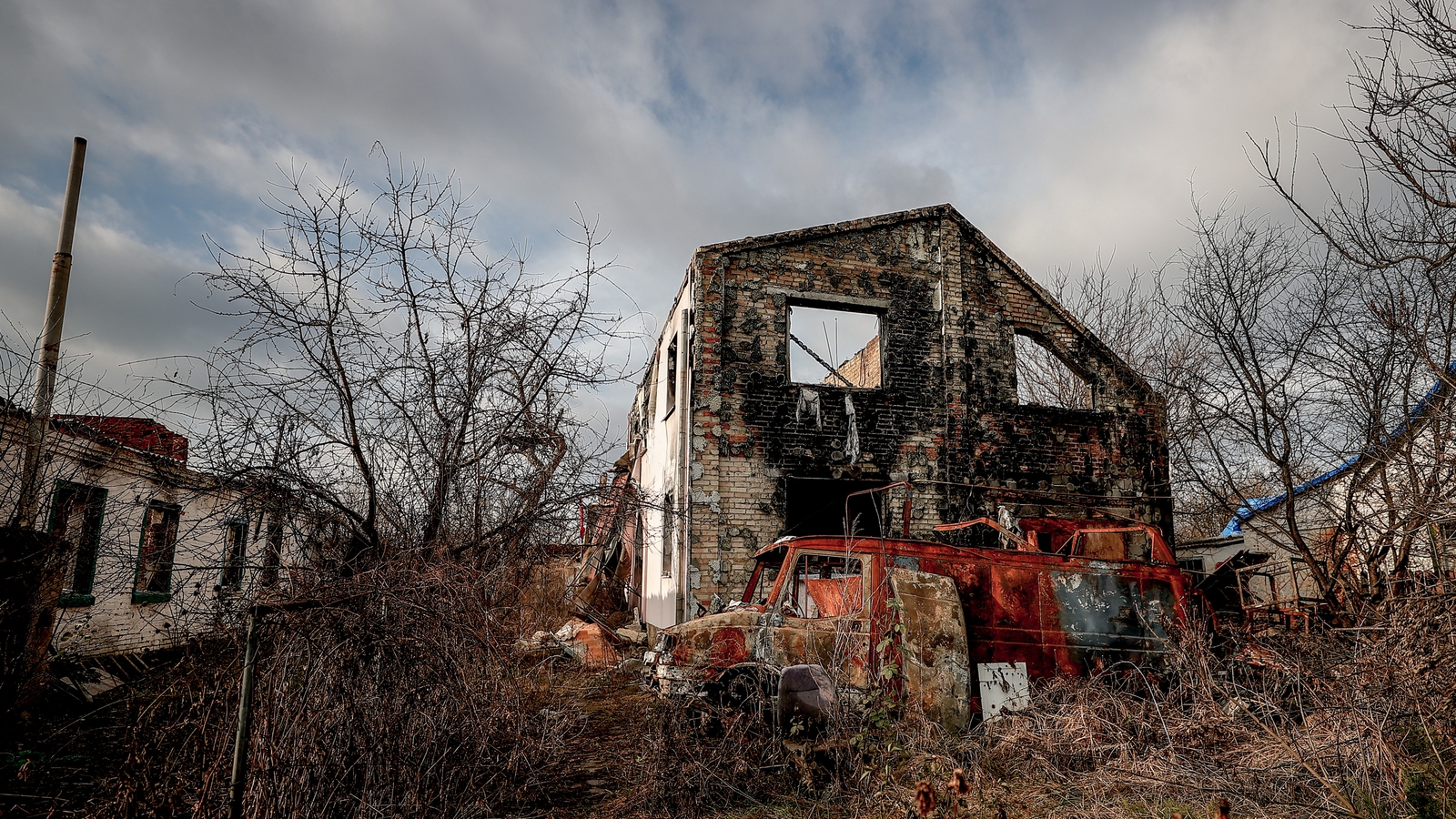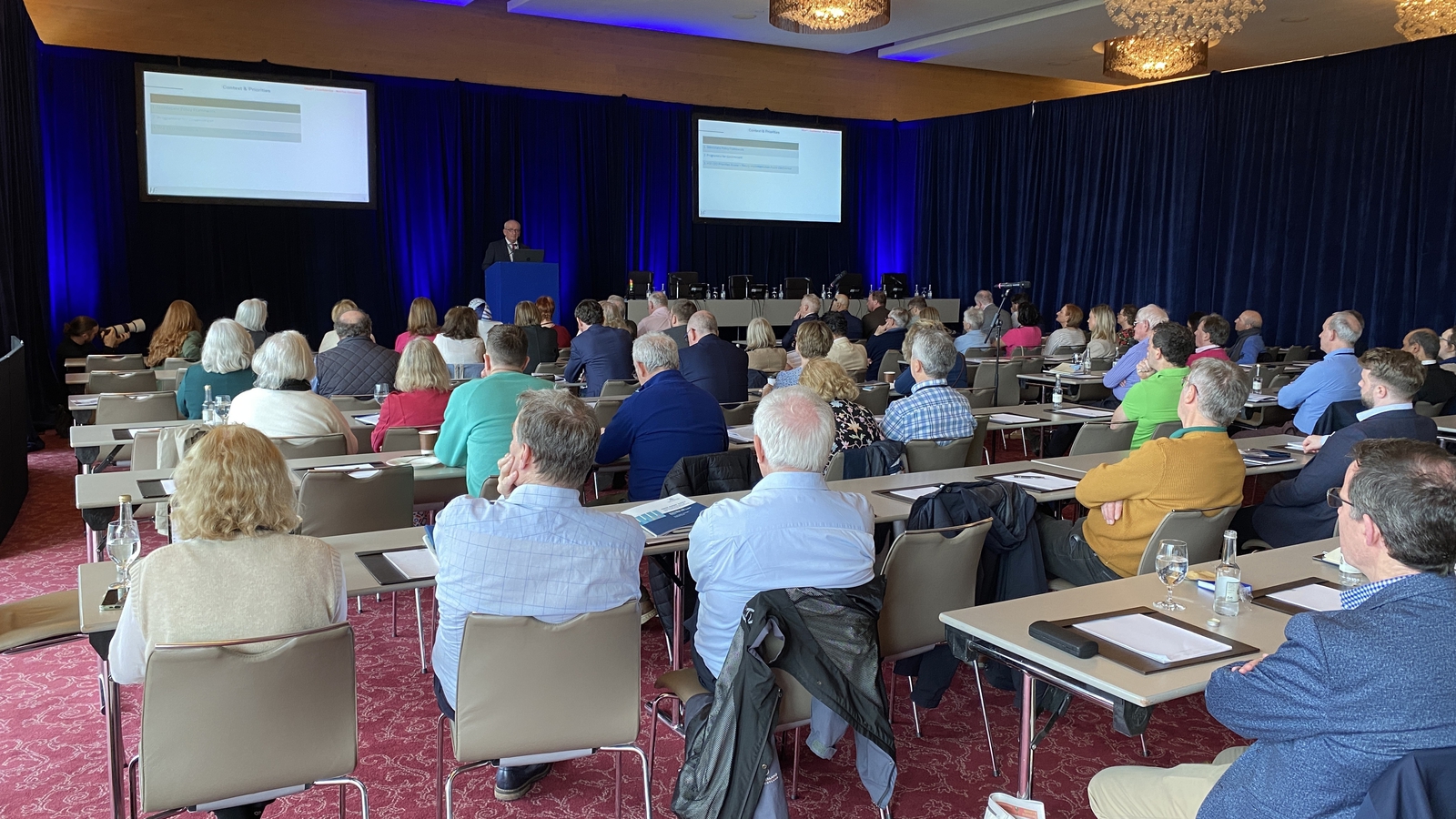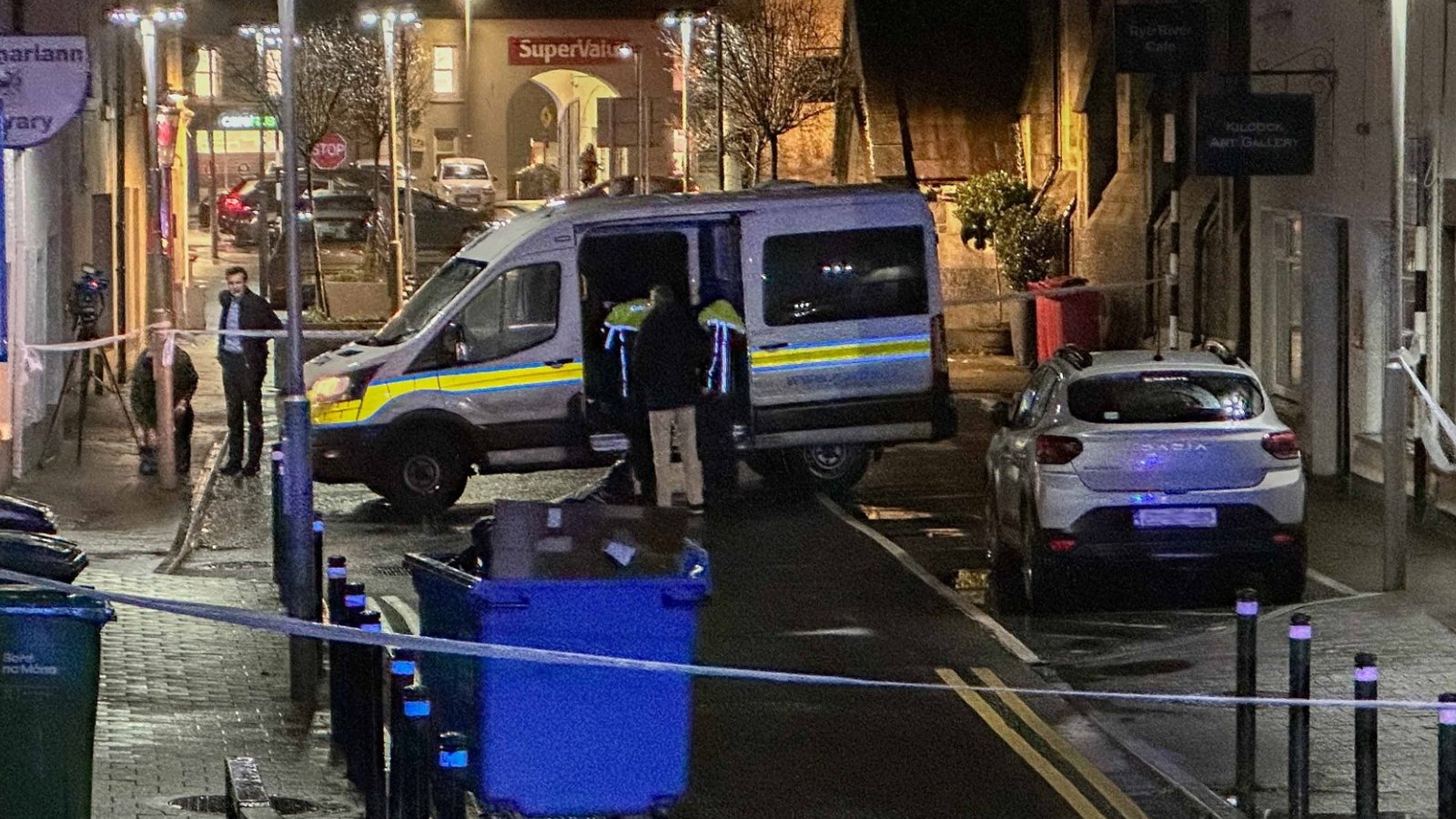Use containers or offices for housing
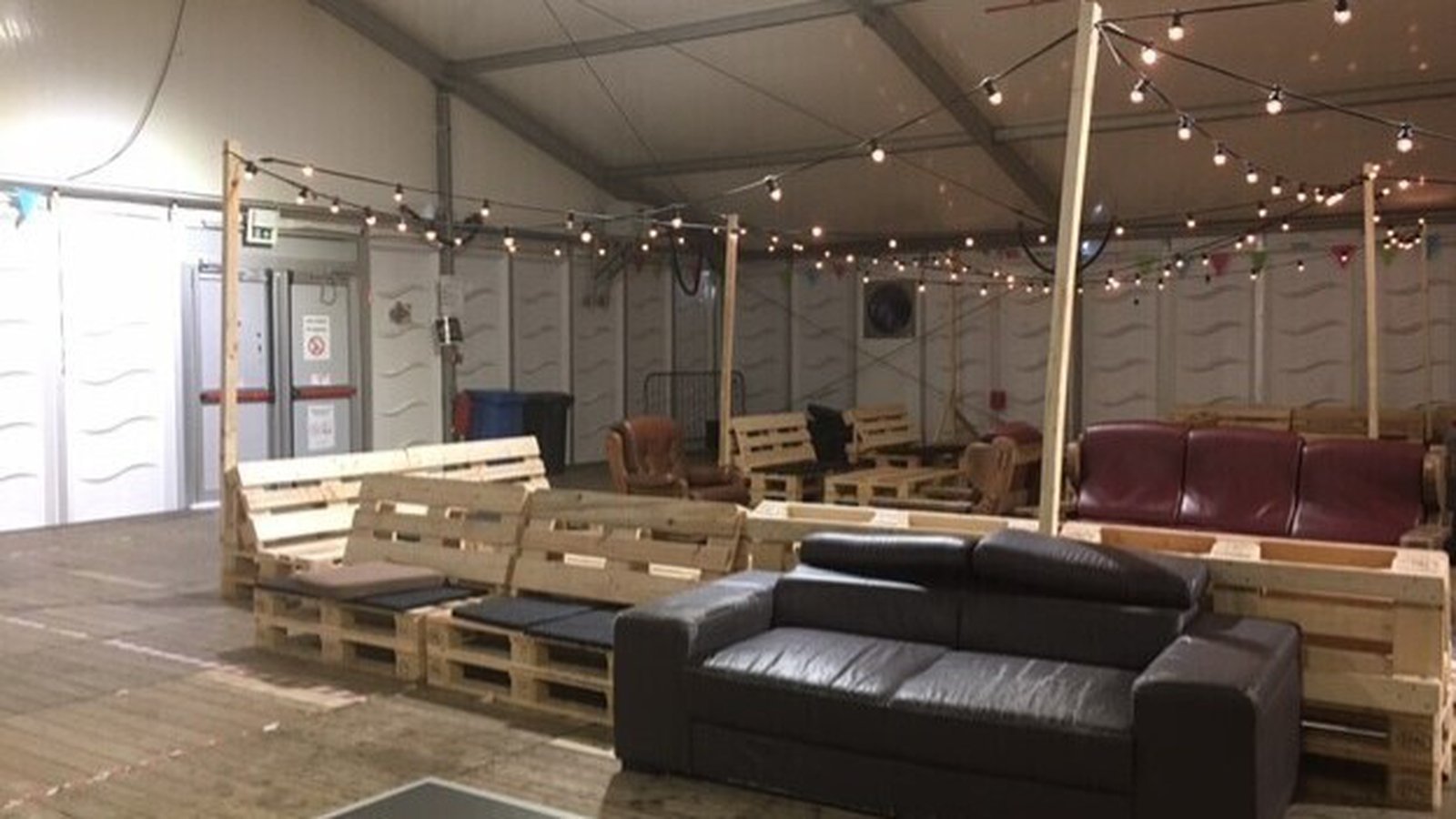
The Irish Red Cross has said that containers or former offices could be converted and used to house refugees and asylum seekers coming to Ireland.
Representatives of the Irish Red Cross visited Brussels this week with officials from the Department of Integration to see how Belgium is responding to the arrival of 76,000 refugees from Ukraine.
The delegation, which included CEO Liam O’Dwyer, visited the four-tower Ariane office block, which has been earmarked for 1,000 refugees, and a container village to accommodate 500 Ukrainians seeking temporary protection.
The purpose of the fact-finding mission was to see how these models can replicated in Ireland for both asylum seekers and Irish homeless people.
In its report after the visit, the Red Cross said that “additional temporary or longer-term accommodation facilities can be put in place” to deal with the situation, but said there needed to be with “cooperation from local and central government”.
The initial visit took place at the State Immigration and Fedasil Reception Centre in central Brussels.
The centre receives Ukrainian temporary protection and international protection refugees.
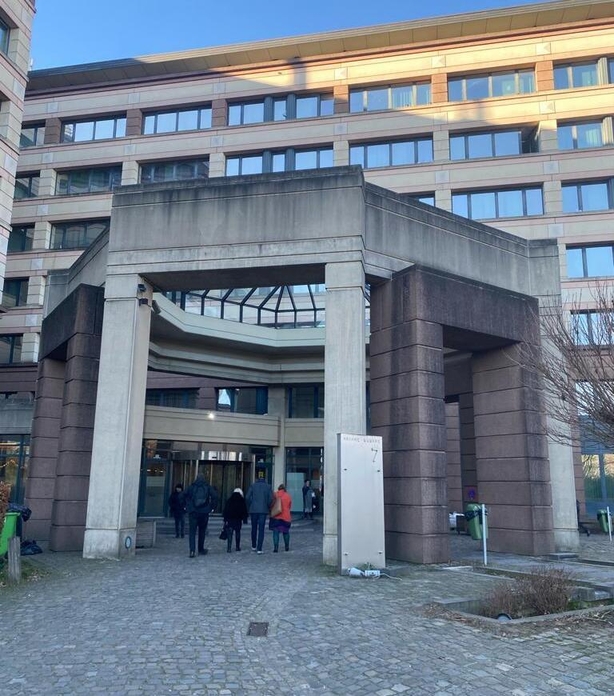
Fingerprinting is part of the registration process in Belgium and Ukrainian people seeking temporary protection must meet the necessary criteria.
Successful applicants are provided with immediate emergency accommodation and a matching process is the second part of the procedure.
Once a match is made, the family are given relevant details of the location, the provider and the means to transport themselves to their new accommodation.
The Irish delegation noted that only 25% of the 76,000 successful applicants sought accommodation from the state.
The remainder had accommodation organised either with relatives, friends or in private rental accommodation.
During interim accommodation in emergency centres, Ukrainian temporary protection applicants receive around €40 per week, via a bank card, which is deemed pocket money, but all meals and services are provided.
Additional small amounts of money can be earned by jobs, such as cleaning in the accommodation centre.
These emergency centres varied from basic steel containers to updated institutional buildings including former hotels.
Functioning hotels in Begium are no longer used for accommodating Ukrainian refugees.
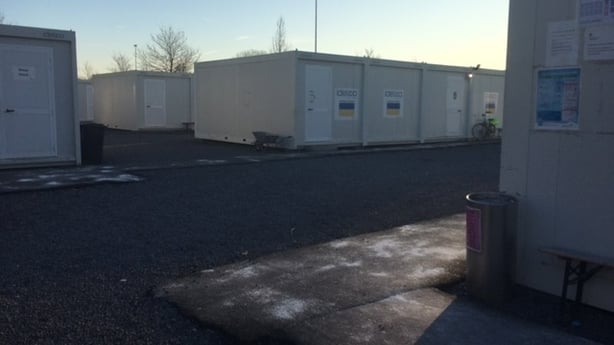
Once in matched accommodation Ukrainian temporary protection applicants receive €1,200 per month per adult.
If they are provided with state-sponsored accommodation, €500 per month is deducted to cover rent and food.
The Ariane Emergency Centre is managed by the Belgium Red Cross and funded by Fedasil. Those housed there included 250 Ukraine temporary protection applicants and 850 international protection refugees.
Initially, the centre was put together in under one month for Ukraine temporary protection applicants, but as the need for accommodation lessened for them the Red Cross opened the accommodation to international protection refugees.
Because international protection refugees are not being matched in the same manner, they remain for longer while their application is being processed.
In addition, the centre makes available 90 emergency beds (camp beds) each evening to accommodate recently arrived refugees, largely international protection refugees.
The team noted that more beds are required “given the number of refugees we witnessed on the street in Brussels in -7C”.
There are 120 staff in the centre who operate over seven floors in four office block buildings.
Management at the complex has been able to use the office spaces for bedrooms, accommodating six to ten people. Beds are steel-based and can be converted to bunk beds.
A spokesperson said: “The operation in Ariane is complex given that it is a full-service accommodation.
“The atmosphere in the centre is calm and welcoming with a large common entrance and reception. While there is security at the reception it is not an intrusive presence.
“There is a very clear branded presence of Red Cross staff front and centre of all areas of this site. Signage is predominately in English given the variance of language of residents.”
The Irish delegation said they saw the conversion of office buildings into residential accommodation with minimal intervention and cost.
Within two weeks of taking over the buildings, the Red Cross was able to provide for 200 people. It was also noted that medical and dentistry services were the most appreciated by the residents.
The team also visited the container village managed by the Red Cross.
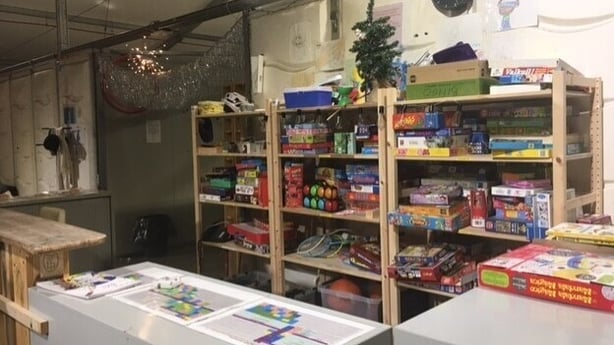
The spokesperson added: “This is again a complex operational environment given the limitations of the containers as living space and the mix of so many families from differing ethnic backgrounds (all Ukrainian).
“The longer-term intention is for residents to move into private rented accommodation and find work.
“This is proving very difficult due to the requirement to speak Dutch and a shortage of private rented accommodation. That said since the opening of the centre 60% of residents have moved on.”
The centre was one of the first emergency villages in Belgium and management at the facility said they would organise the centre differently if starting again.
They have now provided a self-cook facility, which has been very well received and in use by 40% of the residents.
As a quick-build facility the container village was found to be successful in providing shelter and safety for Ukrainians and superior to having any refugees sleeping in tents.
Overall, the visit concluded that accommodation can be provided rapidly either in containers or former office buildings.
The spokesperson said: “The key outcome from the visit is that with cooperation from local and central government, additional temporary or longer-term accommodation facilities can be put in place to accommodate refugees from all cohorts at pace.
“That said accommodation progression opportunities for Ukrainian TPs in Belgium are limited as they are in Ireland and require an urgent focus.”

